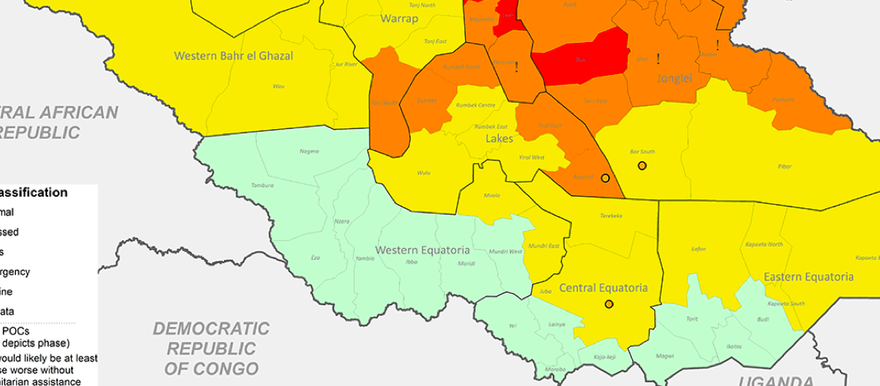The Integrated Food Security Phase Classification (IPC) is a methodology used by food security experts to determine whether an area is experiencing crisis, emergency or famine.
Experts who carried out IPC analysis for South Sudan say there is not yet ‘famine’ anywhere in South Sudan though six counties are at ‘emergency’ food security levels and another five counties would be at the same level or worse were it not for humanitarian assistance.
A summary of their findings states, “Food security across the country has begun improving in August and September and is expected to continue on a positive trend through December 2014 according to seasonal patterns, particularly in areas not affected by conflict.”
This reflects “significant improvements” since the same IPC analysis was carried out in May 2014. However, the situation is still “much worse” compared to a typical year at harvest time, raising concerns for deterioration in 2015.
Alluding to the possibility of intensified dry season fighting in late 2014, the analysts say that before the end of the year, “nearly half of households in Greater Upper Nile will have depleted their food stocks… when new shocks may occur.”
“In order to prevent a dramatic deterioration of food insecurity and malnutrition in 2015, immediate actions should include scaling up humanitarian assistance, including nutrition and livelihood interventions, ensuring safe movement of large volumes of food stocks, and most importantly, securing a peaceful solution to the ongoing political crisis,” reads the summary document.
The document was produced by the IPC Technical Working Group in South Sudan, which includes representatives of the UN Food and Agriculture Organization, UN World Food Programme, aid organizations and government departments.
Photo: Current IPC ratings (September 2014)
For breaking news updates from Radio Tamazuj ‘like’ our page on Facebook, follow us on Twitter, or subscribe to our RSS feed.




